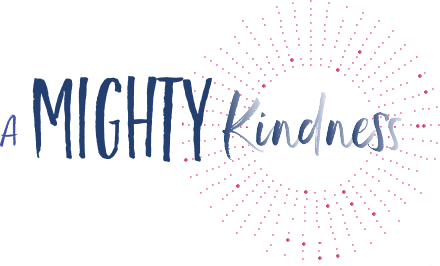The Uses of Sorrow by Mary Oliver
(In my sleep I dreamed this poem)
Someone I loved once gave me
a box full of darkness.
It took me years to understand
that this, too, was a gift.
Good Grief: A Reflection
 I didn’t want to talk about grief today. I didn’t. Because I feel like I already talk about it too much. Think about it too often. Feel it too deeply. Know it too well.
I didn’t want to talk about grief today. I didn’t. Because I feel like I already talk about it too much. Think about it too often. Feel it too deeply. Know it too well.
But this week the American Psychiatric Association, the nation’s oldest medical association, announced that they’ve managed to pathologize another natural human emotion: that’s right. Grief. But not just your average, ordinary grief, this is “prolonged grief.”
Grief that lasts for more than a year. Grief that overwhelms and contracts our lives.
Grief that leaves us in disbelief that somehow we can go on living and breathing when our world feels shattered.
Grief that turns to numbness because no one seems to understand it or know what to do with it when I grab them and ask them, “WHAT DO I DO WITH THIS!?” and so they turn their heads or say something trite and meaningless like “God has a plan.” or “This too shall pass.” Or “she’s in a better place now.”
The kind of grief that when I can’t hold it or eat it or swallow it or hide it anymore, it comes out sideways like a glob of jelly from a sandwich or lashes out like a venomous sting from my lips or slowly but powerfully leaks out of me, eventually building like a tsunami that could wipe the planet clean.
That grief isn’t normal. It’s special. It’s disordered. It’s a mental health condition now.
That kind of grief gets its own billing code and a tiny pill.
That kind of grief gets diagnosed as “prolonged” because we live in a society that pathologically looks away in deep discomfort when we are faced with sorrow or despair, leaving someone—or sometimes an entire nation—to hold onto something that is too big for them to hold onto alone and yet there they are asking, crying, pleading, “What do I do with this? Won’t someone tell me what to do with this?? Won’t you please help me.”
We live in a society that places the sick and dying into hospitals and the elderly and infirm into nursing homes so we don’t have to look at unpleasant things.
We live in a society where mourners are expected to place their grief at the graveside and then immediately return back to their real lives, as if grief wasn’t real life.
We live in a society where getting help means we place a carpet between two chairs: one for my therapist, who must clinically pretend she does not care about me, and one for me, where I sit now, heaving over the loss of whatever I’ve lost or whatever I cannot find again, feeling lonelier than I’ve ever felt.
We live in a society that sanitizes and pathologizes love and the suffering that happens when that love changes because it makes us uncomfortable and sad and God forbid if we’re sad for too long because then we get diagnosed with a mental health condition.
The ancient Chinese philosopher, Confucius, believed that grief was a natural and normal part of life. He said that we must take 3 years to mourn the loss of a parent. When asked by a student if that period could be shortened, Confucius responded that if a person honestly cared about his parents, they would simply be unable to bring themselves to mourn in any less serious way. The usual joys of life would have no attraction for three years and a shortened period would indicate a lack of concern. Three years. If only the APA had read more ancient Chinese texts.
Zen priest and anthropologist Roshi Joan Halifax writes at length on the topic of grief and loss from her perspective as a Buddhist teacher. She says, “Sometimes grieving lasts not for weeks or months but for years. Frequently the reason why grief is not resolved is that it has not been sufficiently attended to just after the loss of a loved one. Family and friends of the deceased can become consumed by the busyness of the business that happens right after someone dies.”
She goes on to say that, “This is one of the great problems that we face in the Western way of dying, that business is so much a part of the experience of dying and death. Survivors often face a complex situation on the material level in the after-death phase…looking for a funeral home, letting friends and family know that a death has happened…creating a funeral service. Unraveling health insurance, taxes, and the last will and testament… Resorting to the business of death can be a way for survivors to avoid the depth of their own loss.”
She seems to get it. It can take years. But in our capitalist culture, does it surprise you that the business of loss gets in the way of grieving only to have the APA and for-profit pharmaceutical companies sweep in to benefit from its delay?
If I sound angry, it’s because I am.
I’m angry because the APA has tried for the past 177 years to codify their white, cis-gendered, heteronormative, patriarchal, colonialistic biases into the mental health of our nation rather than recognize that all too often, their enculurated biases are what is actually disordered about our nation.
I’m angry at how lonely this Western culture makes the experience of grieving. How tidy and sanitized we try to make it. How uncomplicated and unfriendly. How transactional and limited. How the medical industrial complex is telling me that today, 29 years and 1 day after my mother’s death “gave me a box full of darkness”, that this darkness is now considered a mental disorder rather than the complicated but beautiful expression of my love for everything I both lost and gained with her death.
No matter what the APA says, there are many gifts that this “prolonged” grief has given me. It has made me brave by giving me eyes that can see in the dark and the patience to endure here. It has made me strong by giving me a voice to speak up and say that this grief is mine, that this anger is mine, that this fear is mine, this joy is mine, this FIRE is mine and you cannot have it. You cannot take it away from me with your misplaced expectations, your contracted timelines, and your fancy, little pills.
But most importantly this grief has made me kinder and more compassionate because none of us are meant to walk alone in our grief, to journey through this underground of anger, loss, confusion, or sorrow without someone to help tend to that sometimes flickering light of hope that barely illuminates our path. I know this landscape. I understand this territory. And I’ve got the eyes that can pierce the darkness, the voice to remind you you’re not alone, and the fire to help tend your light when the flicker starts to fail. This grief, it’s yours. You get to keep it and hold it for as long as it feels necessary. For as long as it takes you to understand its gifts. And if someone tries to take it from you before you’re ready to let it go? Well don’t worry. We’re here now, together, and I’ve got strong arms, a stronger will, and the ever-enduring patience to help you through the night.
This reflection is excerpted from a bi-weekly interspiritual service, called “Sermon on the Couch.” It was delivered through the House of Belonging—a free kindness community—on April 3, 2022 by Rev. Jessica Steward.

Leave A Comment